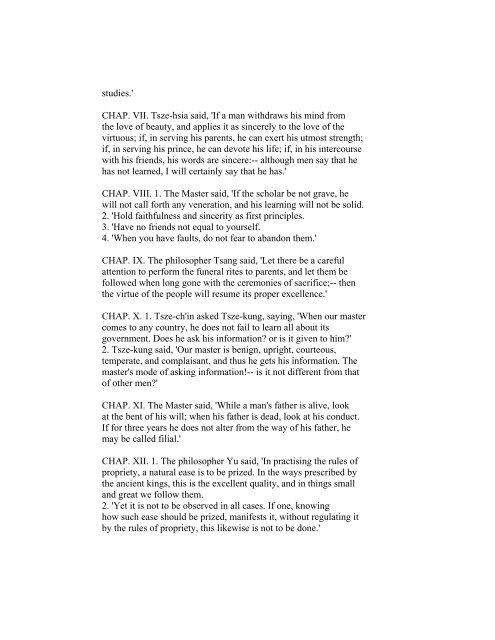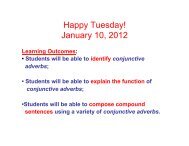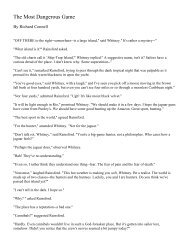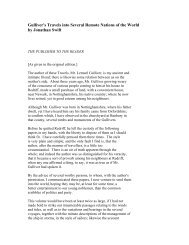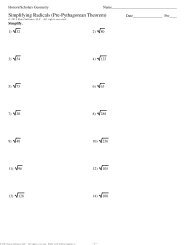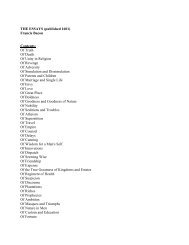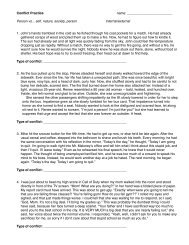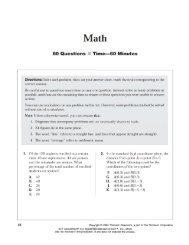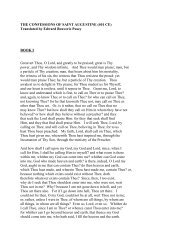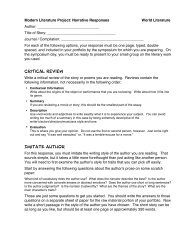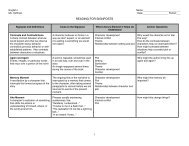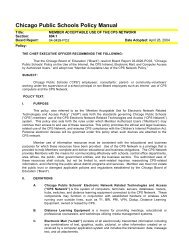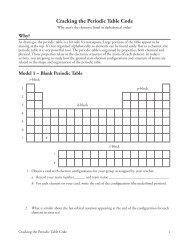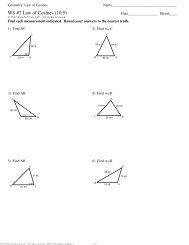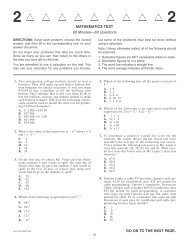CONFUCIUS THE ANALECTS
CONFUCIUS THE ANALECTS
CONFUCIUS THE ANALECTS
Create successful ePaper yourself
Turn your PDF publications into a flip-book with our unique Google optimized e-Paper software.
studies.'<br />
CHAP. VII. Tsze-hsia said, 'If a man withdraws his mind from<br />
the love of beauty, and applies it as sincerely to the love of the<br />
virtuous; if, in serving his parents, he can exert his utmost strength;<br />
if, in serving his prince, he can devote his life; if, in his intercourse<br />
with his friends, his words are sincere:-- although men say that he<br />
has not learned, I will certainly say that he has.'<br />
CHAP. VIII. 1. The Master said, 'If the scholar be not grave, he<br />
will not call forth any veneration, and his learning will not be solid.<br />
2. 'Hold faithfulness and sincerity as first principles.<br />
3. 'Have no friends not equal to yourself.<br />
4. 'When you have faults, do not fear to abandon them.'<br />
CHAP. IX. The philosopher Tsang said, 'Let there be a careful<br />
attention to perform the funeral rites to parents, and let them be<br />
followed when long gone with the ceremonies of sacrifice;-- then<br />
the virtue of the people will resume its proper excellence.'<br />
CHAP. X. 1. Tsze-ch'in asked Tsze-kung, saying, 'When our master<br />
comes to any country, he does not fail to learn all about its<br />
government. Does he ask his information? or is it given to him?'<br />
2. Tsze-kung said, 'Our master is benign, upright, courteous,<br />
temperate, and complaisant, and thus he gets his information. The<br />
master's mode of asking information!-- is it not different from that<br />
of other men?'<br />
CHAP. XI. The Master said, 'While a man's father is alive, look<br />
at the bent of his will; when his father is dead, look at his conduct.<br />
If for three years he does not alter from the way of his father, he<br />
may be called filial.'<br />
CHAP. XII. 1. The philosopher Yu said, 'In practising the rules of<br />
propriety, a natural ease is to be prized. In the ways prescribed by<br />
the ancient kings, this is the excellent quality, and in things small<br />
and great we follow them.<br />
2. 'Yet it is not to be observed in all cases. If one, knowing<br />
how such ease should be prized, manifests it, without regulating it<br />
by the rules of propriety, this likewise is not to be done.'


